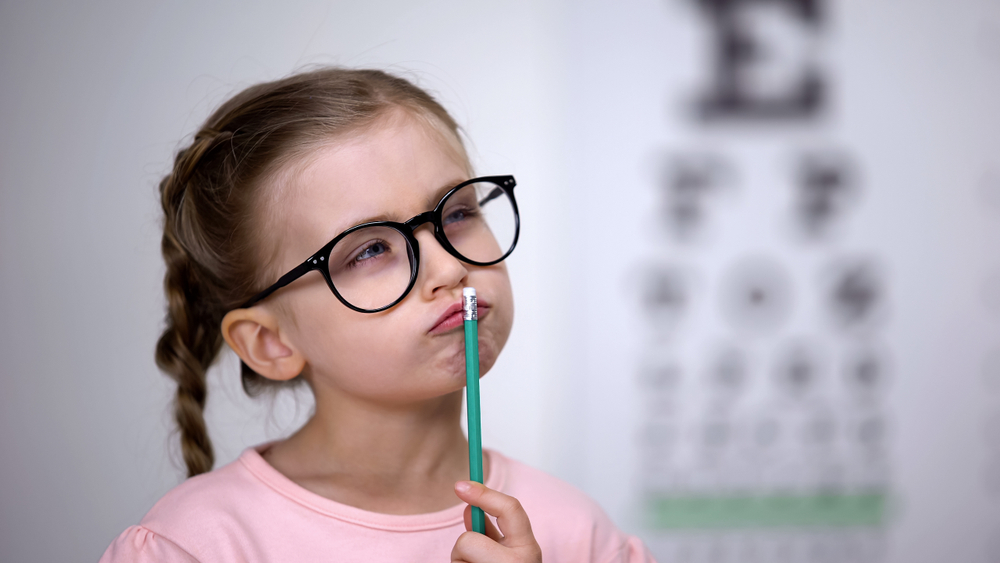
How Vision Problems Can Impact Learning in Children: Early Signs to Watch For
For many children, school can present a variety of challenges, but sometimes, academic struggles may not be due to learning disabilities or lack of focus. Instead, they can be the result of undiagnosed vision problems. Vision plays a critical role in how children process and understand information, and when vision isn’t functioning optimally, it can significantly impact their ability to learn. Recognizing the early signs of vision problems is key to ensuring children get the support they need to thrive both in and out of the classroom.
How Vision Affects Learning
Children rely on their vision to perform a wide range of school-related tasks. Whether it's reading, writing, or focusing on the whiteboard, clear and efficient vision is essential. As much as 80% of what children learn in school is presented visually. This makes vision one of the most important senses when it comes to education. However, many vision problems can go unnoticed, as children may not realize they are experiencing visual difficulties. They may assume that what they are seeing is normal.
Common Vision Problems That Affect Learning
1. Refractive Errors: Conditions such as nearsightedness (myopia), farsightedness (hyperopia), and astigmatism can make it difficult for children to see clearly. These conditions affect how light is focused on the retina and can lead to blurry vision either up close or at a distance, causing strain during reading or other school activities.
2. Convergence Insufficiency: Convergence insufficiency occurs when the eyes have trouble working together to focus on close objects. This can make reading and other close-up tasks difficult, often leading to eyestrain, headaches, and fatigue. Children may skip words or lose their place while reading.
3. Tracking Problems: Tracking refers to the ability of the eyes to follow a moving object smoothly and accurately. When a child has tracking problems, they may struggle to keep their eyes on the words they are reading, often causing them to re-read the same lines or skip ahead unintentionally.
4. Eye Coordination Issues: Also known as binocular vision problems, this occurs when the two eyes are not working together effectively. This can result in double vision, difficulty judging distances, and problems with reading comprehension. Intermittent eye turns (strabismus) can also interfere with reading, writing or aligning columns in math.
5. Focusing Issues: Focusing refers to the ability of the eyes to quickly and accurately shift focus between near and far objects. Children with focusing issues may find it hard to switch between looking at the board and taking notes.
6. Visual Processing Issues: Visual Processing: This refers to the ability to accurately and efficiently interpret what we see. It encompasses several key components essential for effective learning and communication. For instance, visual discrimination allows individuals to notice subtle differences in similarly shaped words, which is crucial for reading and writing. Visual memory plays a vital role in spelling and recognizing sight words, while visualization enhances reading comprehension and writing skills. Additionally, visual-motor integration skills are necessary for handwriting, enabling smooth coordination between visual input and motor output. Laterality and directionality skills pertain to an individual’s understanding of direction both on themselves and in relation to others. Deficiencies in directionality skills can often lead to letter reversals, further complicating reading and writing tasks. Addressing these visual processing issues is essential for promoting effective learning and overall academic success.
Early Signs of Vision Problems in Children
Parents and teachers should be on the lookout for signs that a child may be experiencing vision difficulties. Some of the early indicators include:
• Difficulty reading: If a child frequently skips words or lines, loses their place, or seems to have trouble understanding what they’ve read, it could be due to a vision problem.
• Frequent headaches or eye strain: Vision problems often cause children to experience headaches, especially after doing close-up work like reading or using the computer.
• Squinting or covering one eye: Children may squint to try to improve clarity or cover one eye to compensate for double vision or poor vision in one eye (often associated with strabismus or amblyopia).
• Holding reading material close to the face: If a child holds books or screens unusually close, it may be a sign of nearsightedness or other vision issues
• Short attention span for visual tasks: A child may avoid tasks that require sustained visual attention, such as reading or writing, due to discomfort or difficulty focusing.
• Poor hand-eye coordination: Vision problems can impact a child’s ability to catch a ball, write neatly, or perform other tasks that require coordination between vision and movement.
• Behavioral changes: Children with vision problems may become frustrated, withdrawn, or act out in class because they can’t keep up with the visual demands of schoolwork.
The Importance of Early Intervention
Undiagnosed vision problems can lead to ongoing academic difficulties and emotional distress. The good news is that many vision issues can be effectively treated, particularly when caught early. Regular eye exams are crucial for identifying and addressing these problems before they interfere with a child’s learning and development.
At New Horizons Vision Therapy Center, we specialize in diagnosing and treating a wide range of vision issues that can affect learning. Our comprehensive vision therapy programs are designed to help children strengthen their visual skills, improving both academic performance and overall well-being.
Get in Touch with New Horizons Vision Therapy Center Today
If you notice any of the signs of vision problems, it’s important to schedule a comprehensive eye exam for your child. Early detection of vision problems can prevent future learning difficulties and help your child reach their full potential in school.
Schedule an eye exam with New Horizons Vision Therapy Center to identify any vision issues and learn how our vision therapy programs can help your child thrive. Contact our office in Waunakee, or Waukesha, Wisconsin, by calling (608) 849-4040 to book an appointment today.





